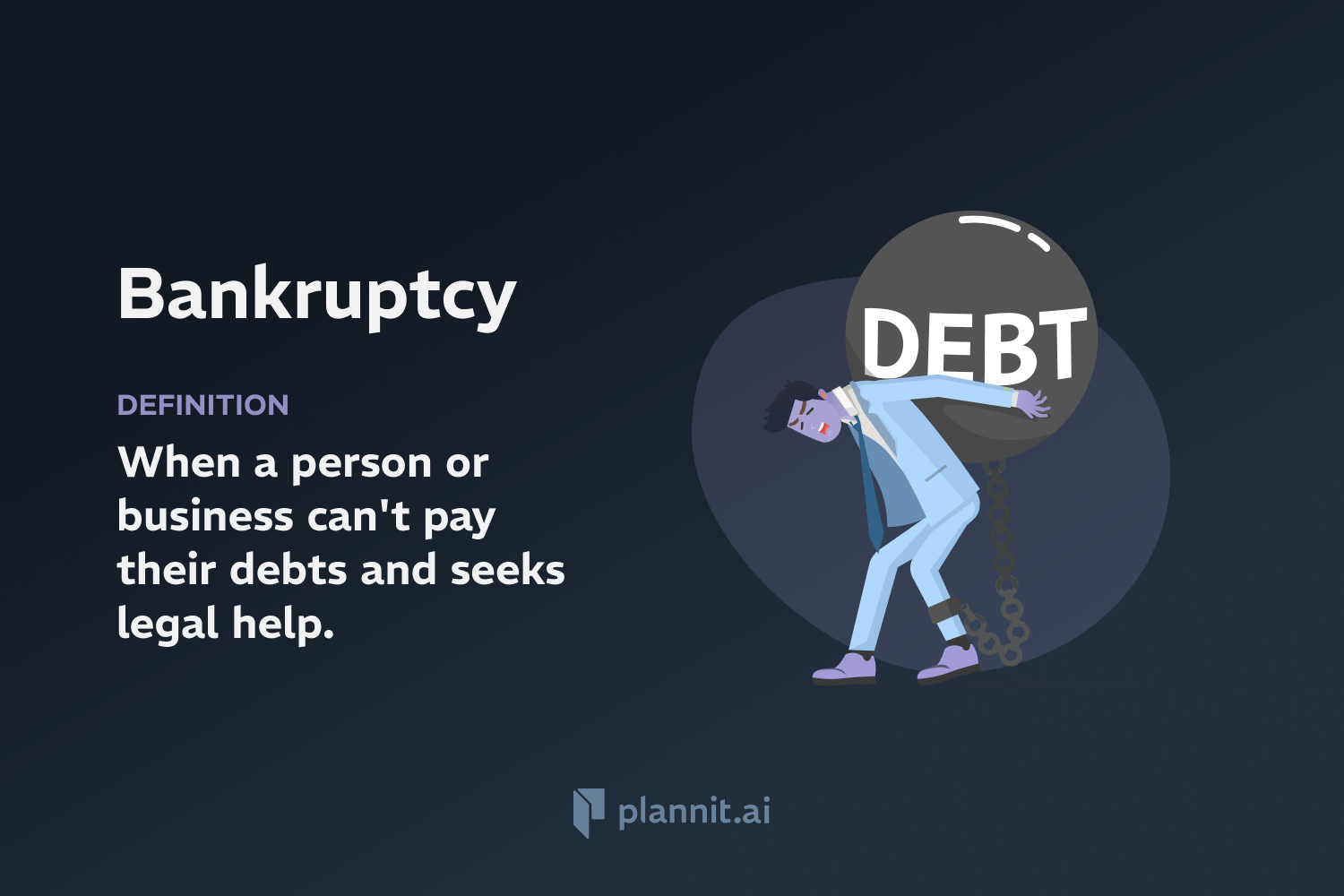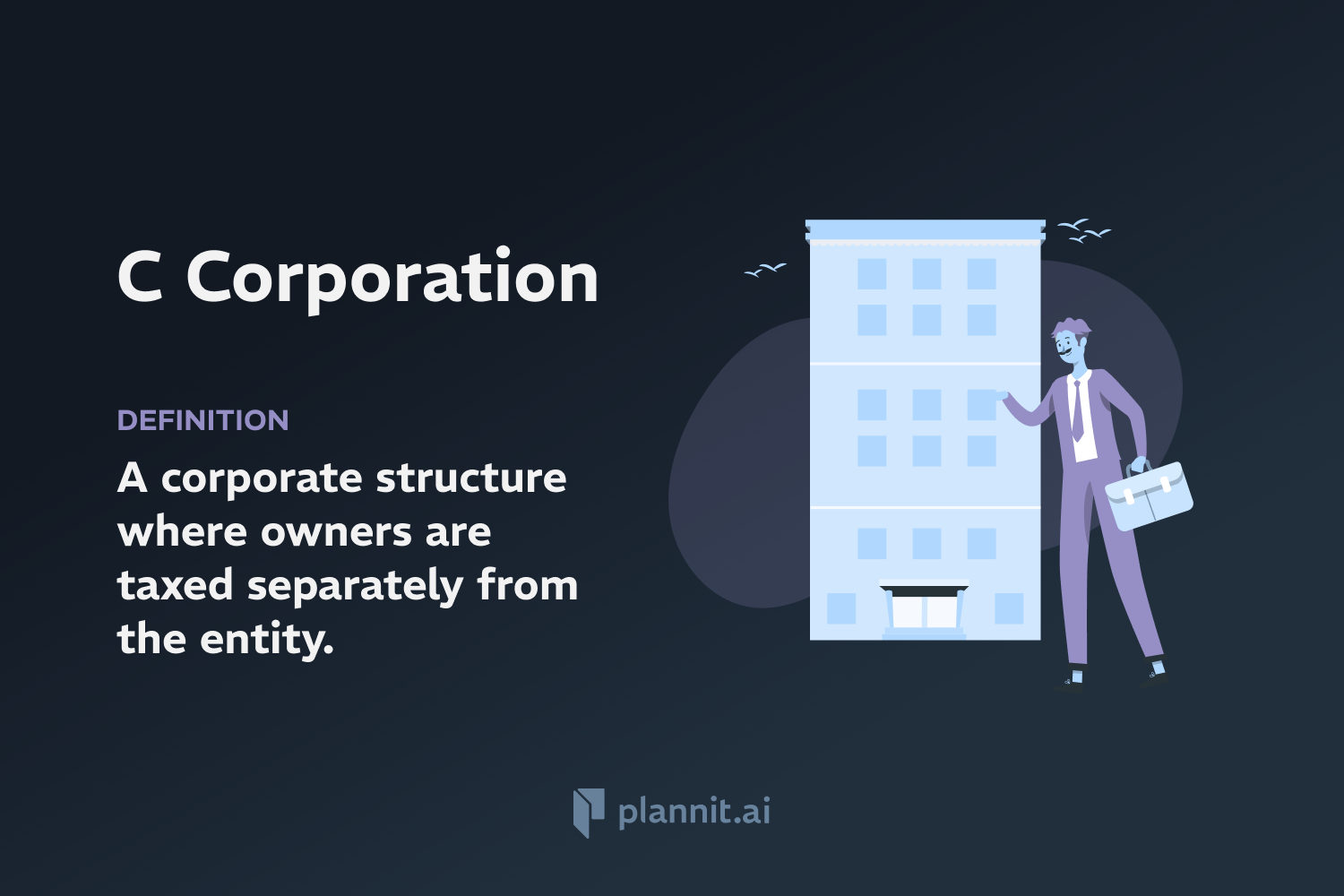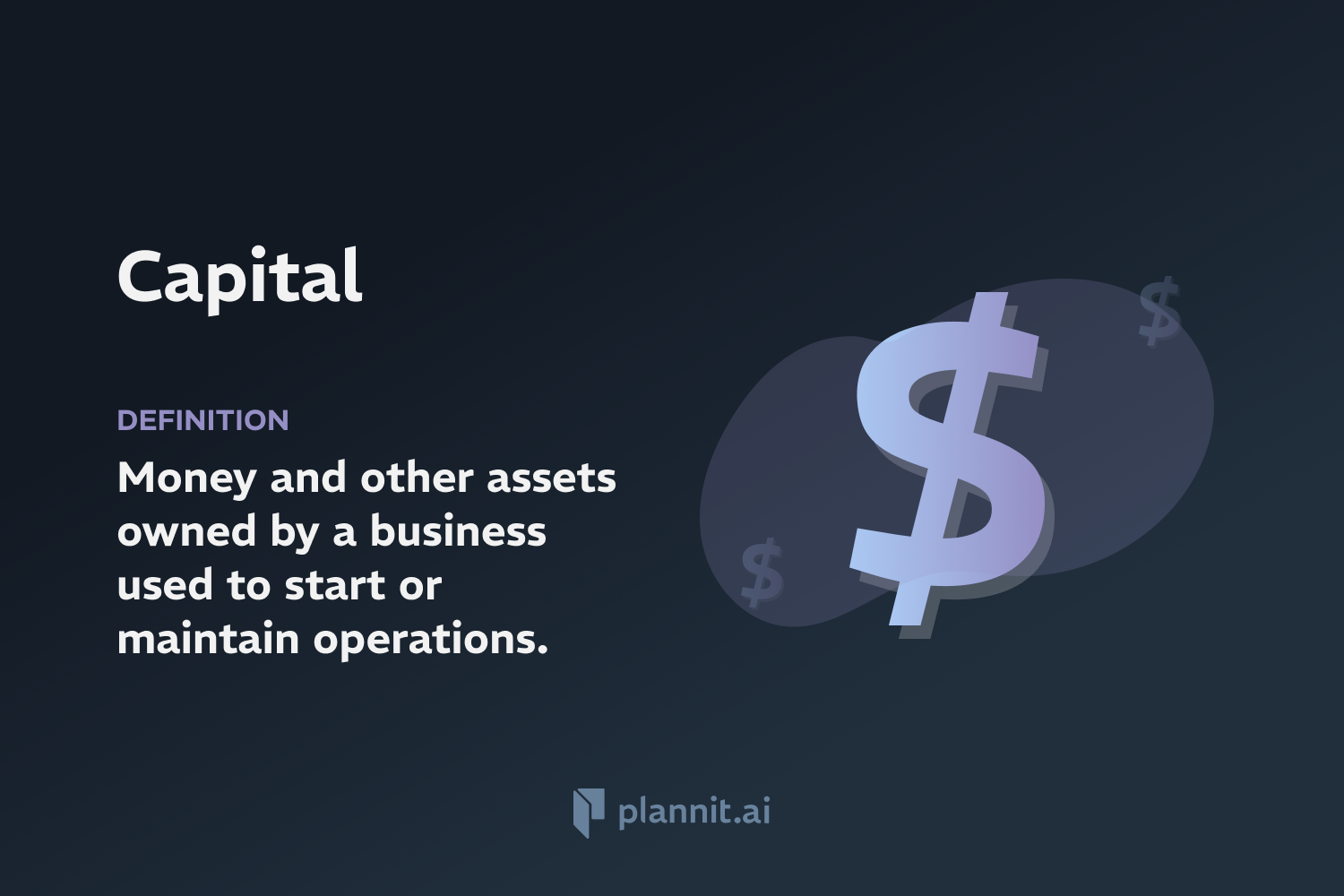Need Help With Your Business Plan?
Answer tailored questions and get a detailed business plan in minutes.
Bankruptcy: Definition & In-Depth Explanation

Bankruptcy is a legal process through which individuals or businesses unable to meet their financial obligations can seek relief from some or all of their debts. In most jurisdictions, bankruptcy laws are enacted to allow the debtor a fresh start, while providing a fair means for creditors to obtain some measure of repayment based on the debtor's available assets.
Purpose:
The purpose of bankruptcy is to help resolve a dire financial situation when a person or company is insolvent, meaning they cannot pay their debts as they become due. It provides a structured way to liquidate assets to pay debts, reorganize operations to become profitable, or close businesses in an orderly manner. Bankruptcy also aims to treat creditors fairly and equitably.
Example:
A retail company facing declining sales, increased competition, and high operational costs may file for Chapter 11 bankruptcy in the United States. This form of bankruptcy allows the company to reorganize its business affairs, debts, and assets, and to propose a plan to creditors for repayment while continuing to operate its business.
Related Terms:
Chapter 7 Bankruptcy: A form of bankruptcy that involves liquidation of the debtor's assets to repay creditors. This is commonly filed by individuals and involves selling off assets to cover debts.
Chapter 11 Bankruptcy: Often used by corporations, this allows the company to continue operations while restructuring its business and debts under court supervision.
Chapter 13 Bankruptcy: A type of bankruptcy in which individuals with a regular income set up a repayment plan to pay off all or part of their debts over a period of three to five years.
Insolvency: The state of being unable to pay the debts, by a person or company, when they become due.
FAQs:
What are the consequences of declaring bankruptcy?
Consequences can include damage to credit ratings, loss of credit cards, inability to obtain new lines of credit or loans for a significant period, and, depending on the bankruptcy type, the loss of property. For businesses, it can mean relinquishing control to a bankruptcy trustee or reorganizing under court supervision.
How does bankruptcy affect employees of a company?
Employees may lose their jobs if the company closes or downsizes. If the company continues operating, bankruptcy may affect wages, benefits, and job security.
Can all debts be discharged in bankruptcy?
Not all debts can be discharged. Non-dischargeable debts can include certain taxes, student loans, alimony, and child support, among others.
How often can an individual or business file for bankruptcy?
The frequency of allowable filings can vary by the type of bankruptcy. For example, under U.S. law, Chapter 7 filers must wait eight years from the date of prior filing to file again.
What is a bankruptcy trustee?
A bankruptcy trustee is a person appointed by the court to manage the debtor's estate. The trustee’s responsibilities include reviewing the debtor's petition and schedules, liquidating the property of the estate, and making distributions to creditors.
Get funding with a business plan that will impress investors.
Starting a New Business?



